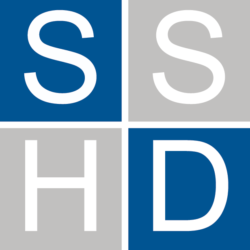 Taking a closer look at research and experiences of SSHD members
Taking a closer look at research and experiences of SSHD members
~Researcher’s Window~
This month, we are getting better acquainted with the research of Dr. Ying Zhang, Assistant Professor of Psychology at Clarkson University and an emerging scholar committee member of SSHD.
- What drew you to do work in human development?
Growing up in a diverse neighborhood, I was intrigued by the varied paths my peers took, shaped by their environments. This sparked my interest in human development, leading me to pursue a master’s in clinical psychology at Jilin University, China. There, I learned the importance of early preventative mechanisms in family settings, which can have a profound impact on development. My doctoral studies at Syracuse University further honed my focus on child development, especially on the effects of experiences like intimate partner violence, maternal mental health, and parenting on children’s growth. This journey deepened my commitment to understanding and improving the foundational experiences that shape human development.
2. Did you have any mentor or a researcher who had a substantial influence on your path or work?
I've been very fortunate to have many great mentors who aren't just brilliant but also incredibly supportive. At Syracuse University, Dr. Rachel Razza, my doctoral advisor, was one of those people. She not only supports my research focus towards early childhood experiences and self-regulation but also brought me into exciting research projects on how mindfulness can enhance self-regulation. Rachel’s warmth, compassion, and the way she balances guidance with autonomy have set an example, which I carry with me in my own teaching and mentoring. Now at Clarkson University, I have received the support of Dr. Lisa Legault in the Psychology Department. Her unwavering support and guidance have been key in helping me navigate the path to tenure while keeping a productive yet balanced career. I’m grateful to have her in my corner.
3. Key contributions to human development:
My research is rooted in Diversity Science and driven by a deep commitment to improving the well-being of children and families through empirical studies. I focus on understanding how different contextual factors—such as intimate partner violence (IPV), parental mental health, and socioeconomic disparities—shape self-regulation in children. At its core, my work seeks to identify key mechanisms of risk and resilience, particularly in early life and adolescence, to inform more effective interventions.
One of my main research areas explores how IPV exposure affects children's self-regulation and overall development. My recent work (Zhang et al., 2024; Family Process) examines how parenting stress and warmth mediate the relationship between IPV exposure and self-regulation, emphasizing the critical role of caregiving environments. A key contribution of my work is synthesizing these findings across developmental stages. For example, a three-wave cross-lagged study (Zhang et al., 2023, Child Abuse & Neglect) provides evidence that IPV and child maltreatment often co-occur and jointly shape self-regulation trajectories over time. Additionally, my systematic review (Zhang et al., 2023, Journal of Family Violence) consolidates decades of research, identifying critical gaps and future directions for understanding the long-term effects of IPV on children's development.
Building on these work, my recent HHS-funded project, Maximizing the Impact of Early Head Start Programs, extends these investigations by taking a person-centered approach to understanding how varying levels of early Head Start program engagement influence children's emotional regulation, parenting practices, and maternal mental health. Using latent growth modeling, our team aims to identify the most effective service profiles for different families, refining early intervention strategies to better support child and family well-being.
4. Your one wish for the study of human development
If granted one wish, it would be for greater recognition and adoption of advanced computational methods, like machine learning, in human development research. These tools could transform our ability to predict outcomes and design personalized interventions. By integrating them, we could better understand the complex interactions between genetic, environmental, and psychological factors across the lifespan, advancing both research and real-world applications in human development.
5. A mentoring statement or quote
“Somewhere, something incredible is waiting to be known.” – Carl Sagan
About the researcher Dr. Ying Zhang is an assistant professor of psychology at Clarkson University, her research focuses on contextual factors such as violence exposure, poverty, maternal mental health, and parenting influencing childhood self-regulation. She also studies topics on appreciation of diversity-seeking, and wellbeing. Dr. Zhang's expertise lies in analyzing longitudinal data with advanced statistical modeling (e.g., latent profile analyses, longitudinal path analysis, latent growth modeling, cross-lagged modeling, and multi-level modeling). She recently developed and taught two undergraduate courses, "Diversity Science" and "Cultural Psychology," focusing on promoting prejudice reduction and cultural competence in college students. She received M.Ed. in Applied Psychology (Clinical track) in China and a Ph.D. in Human Development and Family Science from Syracuse University.
Dr. Ying Zhang is an assistant professor of psychology at Clarkson University, her research focuses on contextual factors such as violence exposure, poverty, maternal mental health, and parenting influencing childhood self-regulation. She also studies topics on appreciation of diversity-seeking, and wellbeing. Dr. Zhang's expertise lies in analyzing longitudinal data with advanced statistical modeling (e.g., latent profile analyses, longitudinal path analysis, latent growth modeling, cross-lagged modeling, and multi-level modeling). She recently developed and taught two undergraduate courses, "Diversity Science" and "Cultural Psychology," focusing on promoting prejudice reduction and cultural competence in college students. She received M.Ed. in Applied Psychology (Clinical track) in China and a Ph.D. in Human Development and Family Science from Syracuse University.
Edited and launched by Yoko Yamamoto, Deborah J. Johnson, and Qingyang Liu
SSHD Publicity & Diversity Science Initiative Committee
Visit our website for more information! https://sshdonline.org/
Like us on Facebook!
Follow us on Instagram!
Follow us on LinkedIn!

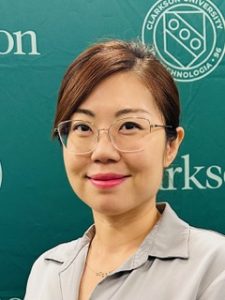 Dr. Ying Zhang is an assistant professor of psychology at Clarkson University, her research focuses on contextual factors such as violence exposure, poverty, maternal mental health, and parenting influencing childhood self-regulation. She also studies topics on appreciation of diversity-seeking, and wellbeing. Dr. Zhang's expertise lies in analyzing longitudinal data with advanced statistical modeling (e.g., latent profile analyses, longitudinal path analysis, latent growth modeling, cross-lagged modeling, and multi-level modeling). She recently developed and taught two undergraduate courses, "Diversity Science" and "Cultural Psychology," focusing on promoting prejudice reduction and cultural competence in college students. She received M.Ed. in Applied Psychology (Clinical track) in China and a Ph.D. in Human Development and Family Science from Syracuse University.
Dr. Ying Zhang is an assistant professor of psychology at Clarkson University, her research focuses on contextual factors such as violence exposure, poverty, maternal mental health, and parenting influencing childhood self-regulation. She also studies topics on appreciation of diversity-seeking, and wellbeing. Dr. Zhang's expertise lies in analyzing longitudinal data with advanced statistical modeling (e.g., latent profile analyses, longitudinal path analysis, latent growth modeling, cross-lagged modeling, and multi-level modeling). She recently developed and taught two undergraduate courses, "Diversity Science" and "Cultural Psychology," focusing on promoting prejudice reduction and cultural competence in college students. She received M.Ed. in Applied Psychology (Clinical track) in China and a Ph.D. in Human Development and Family Science from Syracuse University.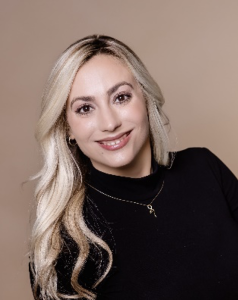 Ashley Shafer, Ph.D., is a Postdoctoral Associate at the University of Pittsburgh’s Office of Child Development. Her work focuses on improving the early childhood experience by creating Early Relational Health informed contexts that support child and family well-being. She specializes in workforce well-being, family engagement, and integrating research into practice to advance equity in early childhood systems. Dr. Shafer’s research emphasizes relationship-based professional development, culturally responsive practices, and program evaluation to ensure that early childhood professionals and families receive the support they need to thrive. Through community-engaged projects, she works to bridge research, policy, and practice to drive systemic change. She received her Ph.D. in Applied Developmental Psychology with a minor in Research Methods from the University of Pittsburgh.
Ashley Shafer, Ph.D., is a Postdoctoral Associate at the University of Pittsburgh’s Office of Child Development. Her work focuses on improving the early childhood experience by creating Early Relational Health informed contexts that support child and family well-being. She specializes in workforce well-being, family engagement, and integrating research into practice to advance equity in early childhood systems. Dr. Shafer’s research emphasizes relationship-based professional development, culturally responsive practices, and program evaluation to ensure that early childhood professionals and families receive the support they need to thrive. Through community-engaged projects, she works to bridge research, policy, and practice to drive systemic change. She received her Ph.D. in Applied Developmental Psychology with a minor in Research Methods from the University of Pittsburgh.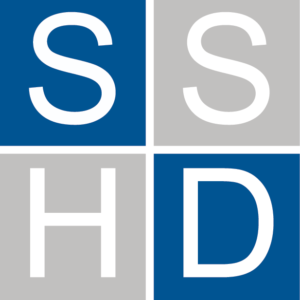 Taking a closer look at research and experiences of SSHD members
Taking a closer look at research and experiences of SSHD members 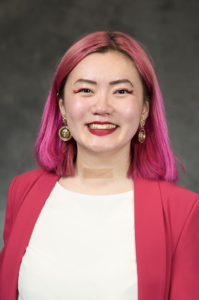 Qingyang Liu is a fifth-year PhD Candidate in the Department of Human Development and Family Science at Syracuse University and an incoming Postdoctoral Research Scholar in the Department of Psychology at Arizona State University in July 2025. Her research program focuses on promoting the developmental trajectory of self-regulation from early childhood through adolescence among racially/ethnically minoritized children living in poverty. Specifically, she investigates the influences of early poverty-related stressors (e.g., material hardship, household chaos), relational processes (e.g., parenting), and socio-environmental factors (e.g., neighborhood poverty/violence) that shape normal and atypical development of self-regulation in various ecological contexts. She received an M.S. in Educational Psychology and Methodology from the University at Albany, SUNY, a B.A. in Psychology from San Francisco State University, and a B.S. in Applied Psychology from Guangzhou Medical University.
Qingyang Liu is a fifth-year PhD Candidate in the Department of Human Development and Family Science at Syracuse University and an incoming Postdoctoral Research Scholar in the Department of Psychology at Arizona State University in July 2025. Her research program focuses on promoting the developmental trajectory of self-regulation from early childhood through adolescence among racially/ethnically minoritized children living in poverty. Specifically, she investigates the influences of early poverty-related stressors (e.g., material hardship, household chaos), relational processes (e.g., parenting), and socio-environmental factors (e.g., neighborhood poverty/violence) that shape normal and atypical development of self-regulation in various ecological contexts. She received an M.S. in Educational Psychology and Methodology from the University at Albany, SUNY, a B.A. in Psychology from San Francisco State University, and a B.S. in Applied Psychology from Guangzhou Medical University.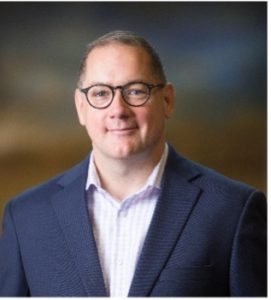 Dr. Rick Settersten is Barbara Knudson Endowed Chair and Professor of Human Development and Family Sciences at Oregon State University, and Head of the School of Social and Behavioral Health Sciences in the College of Public Health and Human Sciences. He is the founding director of the Hallie Ford Center for Healthy Children and Families at OSU and was a member of the MacArthur Research Network on Transitions to Adulthood and Public Policy. He received his doctorate in Human Development and Social Policy from Northwestern University and held a postdoctoral fellowship at the Max Planck Institute for Human Development and Education in Berlin
Dr. Rick Settersten is Barbara Knudson Endowed Chair and Professor of Human Development and Family Sciences at Oregon State University, and Head of the School of Social and Behavioral Health Sciences in the College of Public Health and Human Sciences. He is the founding director of the Hallie Ford Center for Healthy Children and Families at OSU and was a member of the MacArthur Research Network on Transitions to Adulthood and Public Policy. He received his doctorate in Human Development and Social Policy from Northwestern University and held a postdoctoral fellowship at the Max Planck Institute for Human Development and Education in Berlin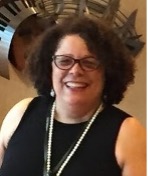 Dr. Deborah J. Johnson's research explores racially and culturally related development, parental racial socialization and coping, cultural adjustment from early childhood through emerging adulthood, in both domestic and international children and youth. Current work focuses on the influence of early bias preparation and coping at the intersection of gender and race among African American and Latina College women, and the impact on their well-being and school performance. Additionally, she studies cultural adjustment and identity development among unaccompanied Sudanese refugee minors and majors, and in international settings with Indigenous Australian youth and, core collaboration on Roma youth in Europe. She is also Director of the Diversity Research Network, a faculty serving entity under the auspices of MSU’s Office for Inclusion and Intercultural Initiatives.
Dr. Deborah J. Johnson's research explores racially and culturally related development, parental racial socialization and coping, cultural adjustment from early childhood through emerging adulthood, in both domestic and international children and youth. Current work focuses on the influence of early bias preparation and coping at the intersection of gender and race among African American and Latina College women, and the impact on their well-being and school performance. Additionally, she studies cultural adjustment and identity development among unaccompanied Sudanese refugee minors and majors, and in international settings with Indigenous Australian youth and, core collaboration on Roma youth in Europe. She is also Director of the Diversity Research Network, a faculty serving entity under the auspices of MSU’s Office for Inclusion and Intercultural Initiatives.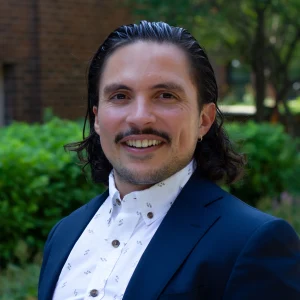 Dr. Juan Del Toro is Assistant Professor at the Department of Psychology at the University of Minnesota, Twin Cities. His primary appointment is in the Personality, Individual Differences, and Behavioral Genetics (PIB) program. He also holds affiliate faculty appointments in the Clinical Science and Psychopathology Research program, the Institute of Child Development, and the Minnesota Population Center. I received my Ph.D. in Developmental Psychology with a concentration in Advanced Quantitative Analyses from New York University, and he completed my postdoctoral training at the University of Pittsburgh. As a developmental psychologist, he examines how specific perpetrators of ethnic-racial discrimination (e.g., peers, school adults, and law enforcement) and ethnic-racial socialization (e.g., parents, school adults, and peers) shape children’s life course trajectories. The goal of specifying perpetrators is to inform setting-specific policies and interventions working to improve the well-being of all youth.
Dr. Juan Del Toro is Assistant Professor at the Department of Psychology at the University of Minnesota, Twin Cities. His primary appointment is in the Personality, Individual Differences, and Behavioral Genetics (PIB) program. He also holds affiliate faculty appointments in the Clinical Science and Psychopathology Research program, the Institute of Child Development, and the Minnesota Population Center. I received my Ph.D. in Developmental Psychology with a concentration in Advanced Quantitative Analyses from New York University, and he completed my postdoctoral training at the University of Pittsburgh. As a developmental psychologist, he examines how specific perpetrators of ethnic-racial discrimination (e.g., peers, school adults, and law enforcement) and ethnic-racial socialization (e.g., parents, school adults, and peers) shape children’s life course trajectories. The goal of specifying perpetrators is to inform setting-specific policies and interventions working to improve the well-being of all youth.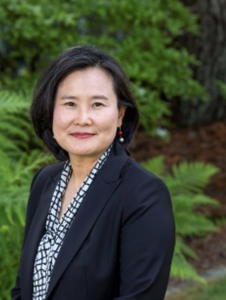 Hyun-Kyung You is Professor in the Child Development Department at California State Polytechnic University, Humboldt. Hyun-Kyung’s research focuses on the dialectic interactions between individuals’ agency and sociocultural contexts. Particularly, she is interested in family life in relation to child’s disability, motherhood in cultural contexts, and intergenerational relationships and caregiving in transnational families. Hyun-Kyung also has broadened her research interest into understanding the BTS fandom, ARMY (Adorable Representative MC of Youth) through human development and family studies lens. She is a recipient of 2012 Jessie Bernard Outstanding Research Paper Award from a Feminist Perspective, National Council on Family Relations. Hyun-Kyung teaches various courses on early childhood development and practices, families and children with disabilities, and families in community and cultural contexts.
Hyun-Kyung You is Professor in the Child Development Department at California State Polytechnic University, Humboldt. Hyun-Kyung’s research focuses on the dialectic interactions between individuals’ agency and sociocultural contexts. Particularly, she is interested in family life in relation to child’s disability, motherhood in cultural contexts, and intergenerational relationships and caregiving in transnational families. Hyun-Kyung also has broadened her research interest into understanding the BTS fandom, ARMY (Adorable Representative MC of Youth) through human development and family studies lens. She is a recipient of 2012 Jessie Bernard Outstanding Research Paper Award from a Feminist Perspective, National Council on Family Relations. Hyun-Kyung teaches various courses on early childhood development and practices, families and children with disabilities, and families in community and cultural contexts.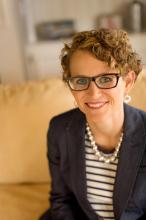 Christia Spears Brown, Ph.D., is the Professor of Developmental Psychology and Associate Dean of Inclusive Excellence in the College of Arts and Sciences at the University of Kentucky. Her research focuses on children’s understanding of discrimination, the development of stereotypes and group identity, and the impact of discrimination and stereotypes on academic outcomes. As an intergroup researcher, her work spans gender and gender identity, ethnicity, immigration status, and economic inequality. In addition to peer-reviewed journal articles and book chapters, she has written three books, one for an academic audience, Discrimination in Childhood and Adolescence, and two for general audiences, Parenting Beyond Pink and Blue and Unraveling Bias. She is a Fellow of the Association for Psychological Science; has been a Society for Research in Child Development Scholar-in-Residence; and is an Associate Editor for British Journal of Developmental Psychology. She is committed to “giving science away” to help improve the lives of all children and adolescents, and therefore regularly speaks with parent groups, schools, toy and media companies, and professional organizations about reducing the impact of stereotypes, is regularly featured in national media outlets, and has served as an expert witness for the ACLU on cases of gender discrimination in schools.
Christia Spears Brown, Ph.D., is the Professor of Developmental Psychology and Associate Dean of Inclusive Excellence in the College of Arts and Sciences at the University of Kentucky. Her research focuses on children’s understanding of discrimination, the development of stereotypes and group identity, and the impact of discrimination and stereotypes on academic outcomes. As an intergroup researcher, her work spans gender and gender identity, ethnicity, immigration status, and economic inequality. In addition to peer-reviewed journal articles and book chapters, she has written three books, one for an academic audience, Discrimination in Childhood and Adolescence, and two for general audiences, Parenting Beyond Pink and Blue and Unraveling Bias. She is a Fellow of the Association for Psychological Science; has been a Society for Research in Child Development Scholar-in-Residence; and is an Associate Editor for British Journal of Developmental Psychology. She is committed to “giving science away” to help improve the lives of all children and adolescents, and therefore regularly speaks with parent groups, schools, toy and media companies, and professional organizations about reducing the impact of stereotypes, is regularly featured in national media outlets, and has served as an expert witness for the ACLU on cases of gender discrimination in schools.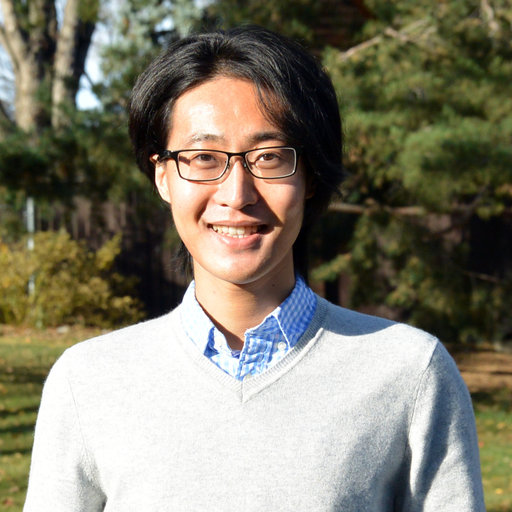
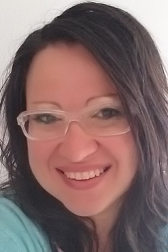 About the researcher Dr. Radosveta Dimitrova is a developmental and cross-cultural psychologist with main research interests on positive development, acculturation, migration, identity, indigenous and vulnerable ethnic minority (Roma) communities, and adaptation of measures for use in different cultures. She has research and teaching experience in leading universities across the globe and international collaborations in Europe, Asia, Africa, Australia, New Zealand, North and South America. She has primarily published in human development, cross-cultural and international psychology, emerging adulthood, child and family studies, and assessment by also serving major organizations and editorial boards of leading journals in other fields. In various global collaborations and organizations, she has systematically researched and provided service to vulnerable populations and fellow scholars in underprivileged contexts.
About the researcher Dr. Radosveta Dimitrova is a developmental and cross-cultural psychologist with main research interests on positive development, acculturation, migration, identity, indigenous and vulnerable ethnic minority (Roma) communities, and adaptation of measures for use in different cultures. She has research and teaching experience in leading universities across the globe and international collaborations in Europe, Asia, Africa, Australia, New Zealand, North and South America. She has primarily published in human development, cross-cultural and international psychology, emerging adulthood, child and family studies, and assessment by also serving major organizations and editorial boards of leading journals in other fields. In various global collaborations and organizations, she has systematically researched and provided service to vulnerable populations and fellow scholars in underprivileged contexts.